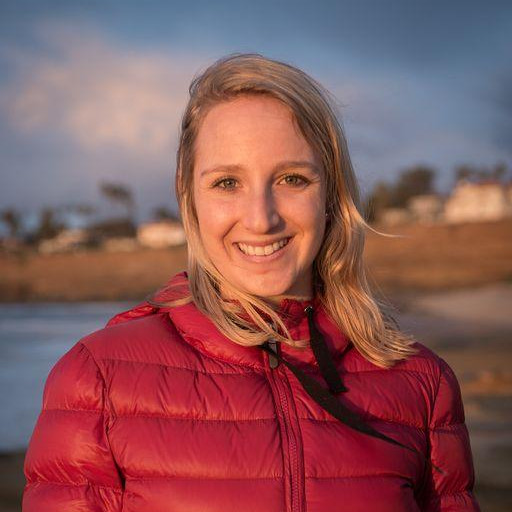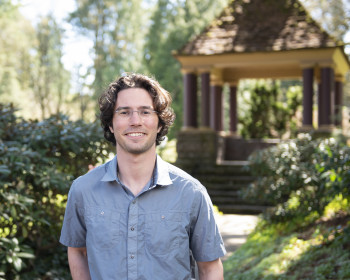Alumna pioneers waste-reduction strategies for food service industry
Open gallery

Like most Lewis & Clark students, Claire Cummings BA ’11 became familiar with Bon Appétit through on-campus dining. Now as Bon Appétit Management Company’s newly appointed waste sustainability specialist, Cummings has the opportunity to be a pioneer in the food service industry. Sustainable Business Oregon reports that Bon Appétit is the only food service company to have created such a specialized position for the oversight of waste.
Prior to taking on this role, Cummings served as Bon Appétit’s West Coast fellow. She began her fellowship in the fall of 2012 after working with nonprofit organization Citizen Effect to raise money for the Common Good City Farm project. As a fellow, Cummings advocated for improved food industry practices and educated people on the importance of sustainable food choices. She also worked with Urban Gleaners, a food recovery organization, to ensure that surplus food from Lewis & Clark would be donated to children in need. Her engagement with such philanthropic, waste-focused projects helped Cummings earn her current position.
Cummings credits an internship experience as the starting point for her interest in food waste.
“When I was attending Lewis & Clark, I interned with Steve Cohen from the City of Portland Bureau of Planning and Sustainability Food Policy and Programs,” Cummings said. “He was the first person who got me thinking about how waste plays an important role in a sustainable food system. He helped me see beyond farm to fork to start thinking about farm to fork to soil, the true lifecycle of food!”
Said Cummings, “Many people are familiar with the saying ‘when in doubt, throw it out,’ which I think is a poor approach to waste because it doesn’t hold people accountable for dealing with the waste they produce. For me, the saying ought to go ‘when in doubt, figure it out’ so people recognize their role and responsibility in figuring out how to deal with their own waste.”
Katrina Staaf ’16 contributed to this story.
More Newsroom Stories
Public Relations is located in McAfee on the Undergraduate Campus.
MSC: 19
email public@lclark.edu
voice 503-768-7970
Public Relations
Lewis & Clark
615 S. Palatine Hill Road MSC 19
Portland OR 97219

